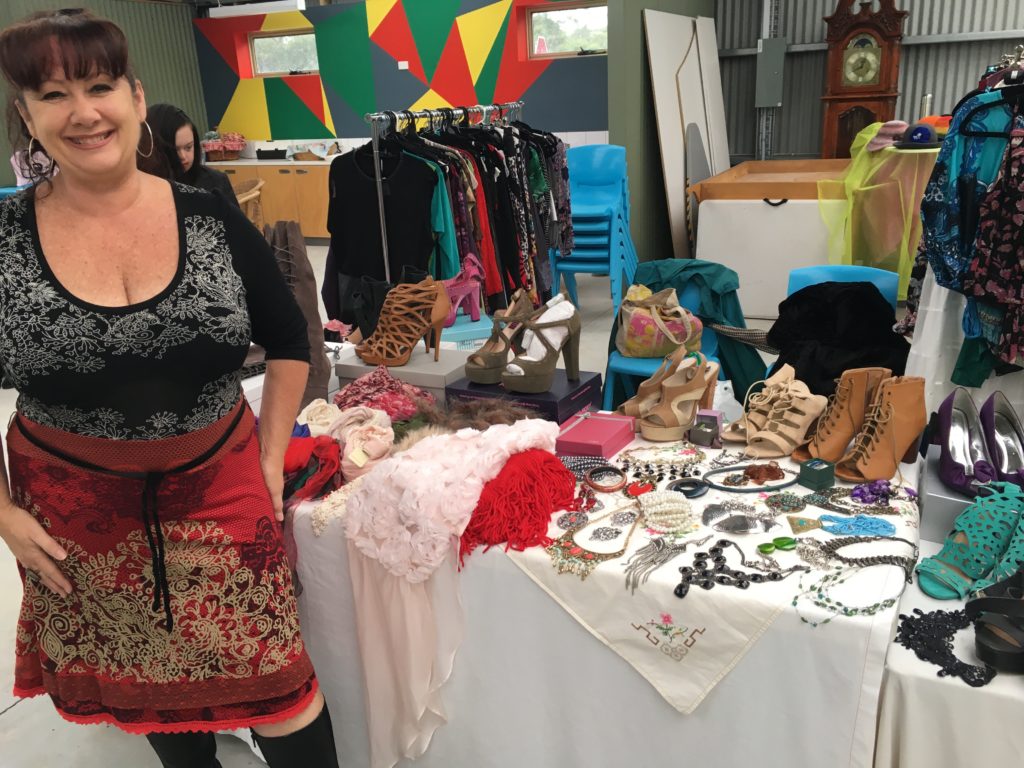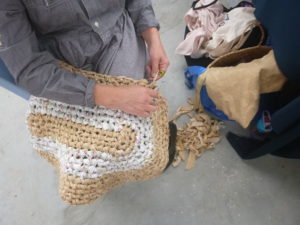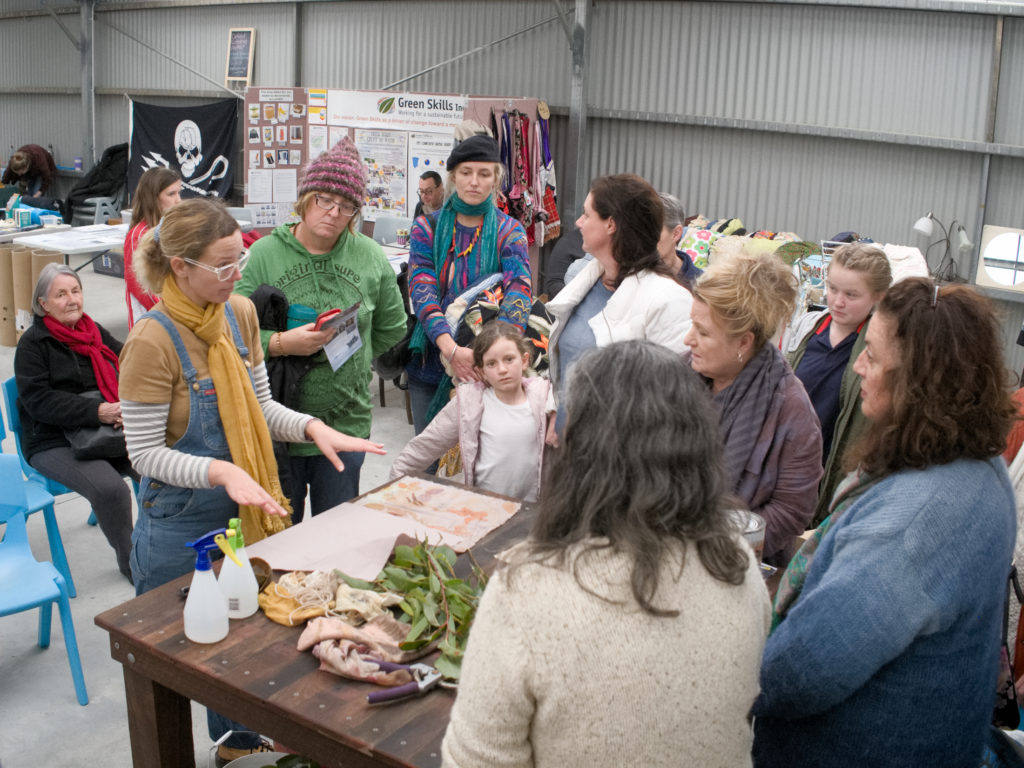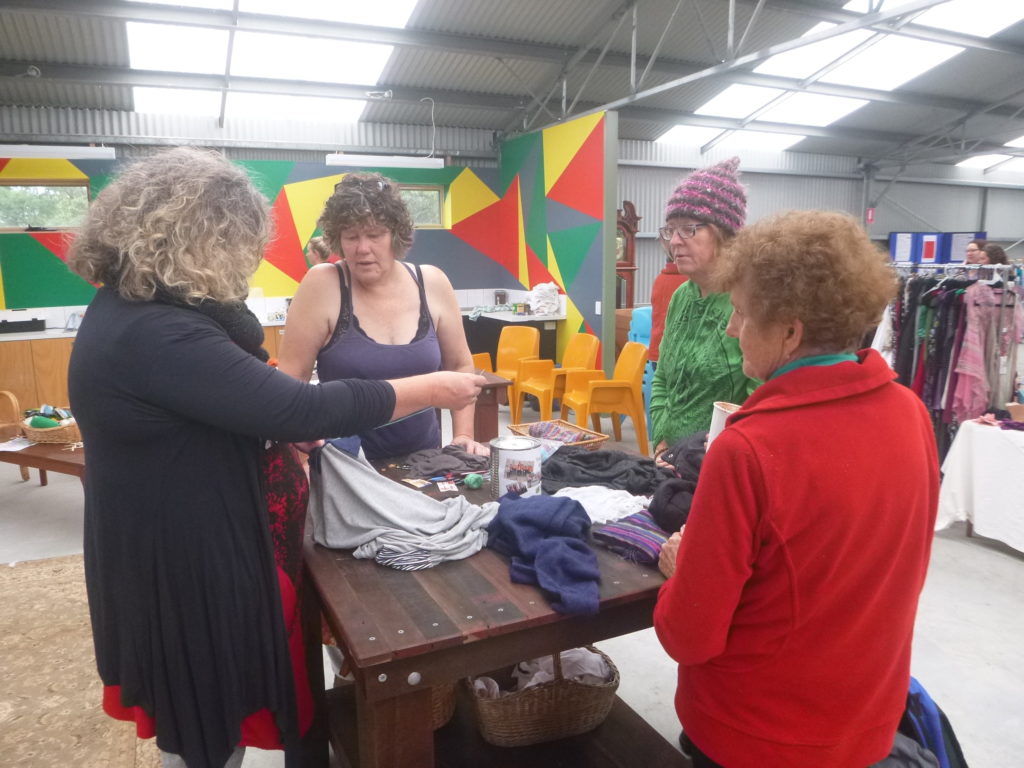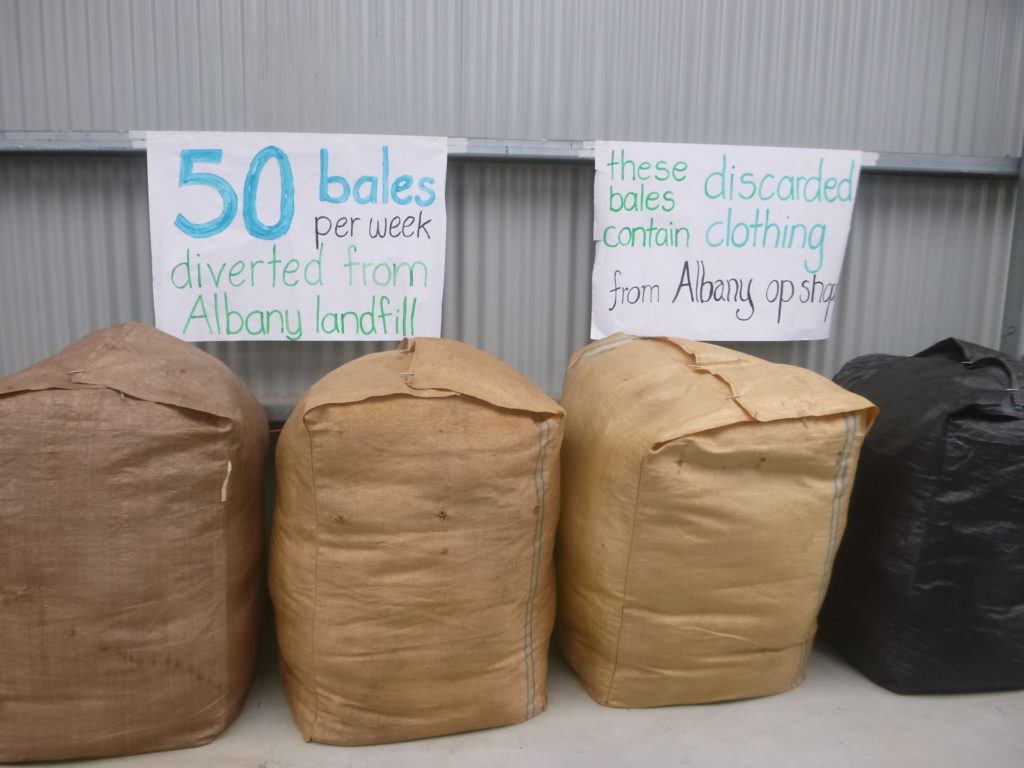by Basil | Sep 16, 2019 | Green Skills Inc. - Sustainability Non-Profit
Appreciating some magnificent contributors to our Denmark-Kwoorabup community
Here Green Skills takes the opportunity to thank and appreciate those volunteers and groups who support the Denmark Community Garden and who are consistently marvellous. This is a tribute to them and all the many quiet people who give heaps to our town and our world. Thank you
Support to establish the garden has come from Green Skills, the Denmark CRC, Kwoorabup Denmark Transition Town Network, the Foundation for Rural and Regional Renewal, the Denmark Community Windfarm Group Sustainability Fund, Metroof, Thornton’s Hardware & Mitre 10, the Denmark Men’s Shed, contractors, other groups & volunteers
Basil
Green Skills Denmark 98483110
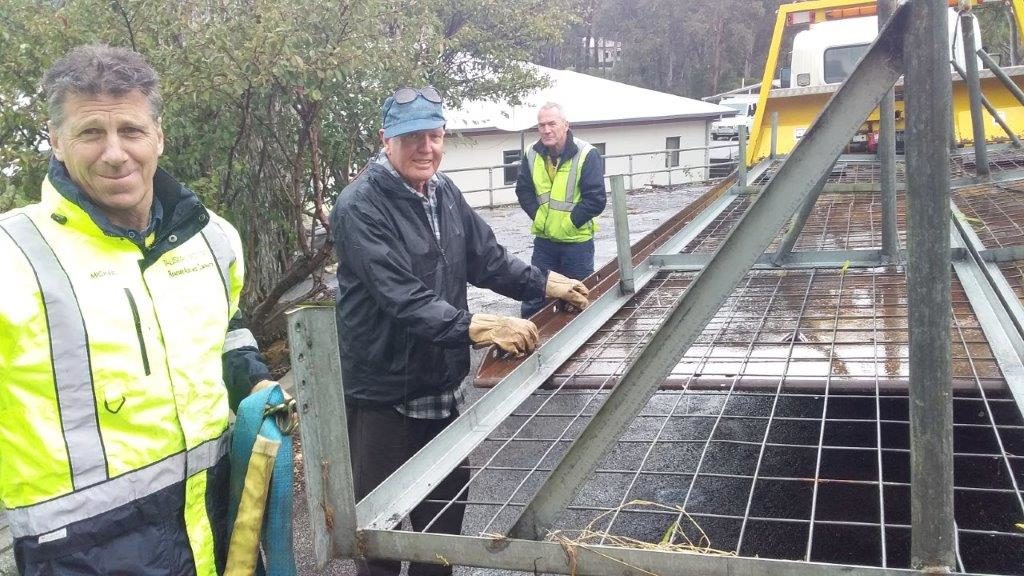
Michael (of RAC rescue fame), Don and Greg. Last Wednesday in the pouring rain, Michael volunteered his truck and skills to help move some big shadehouse benchtops to the DCG
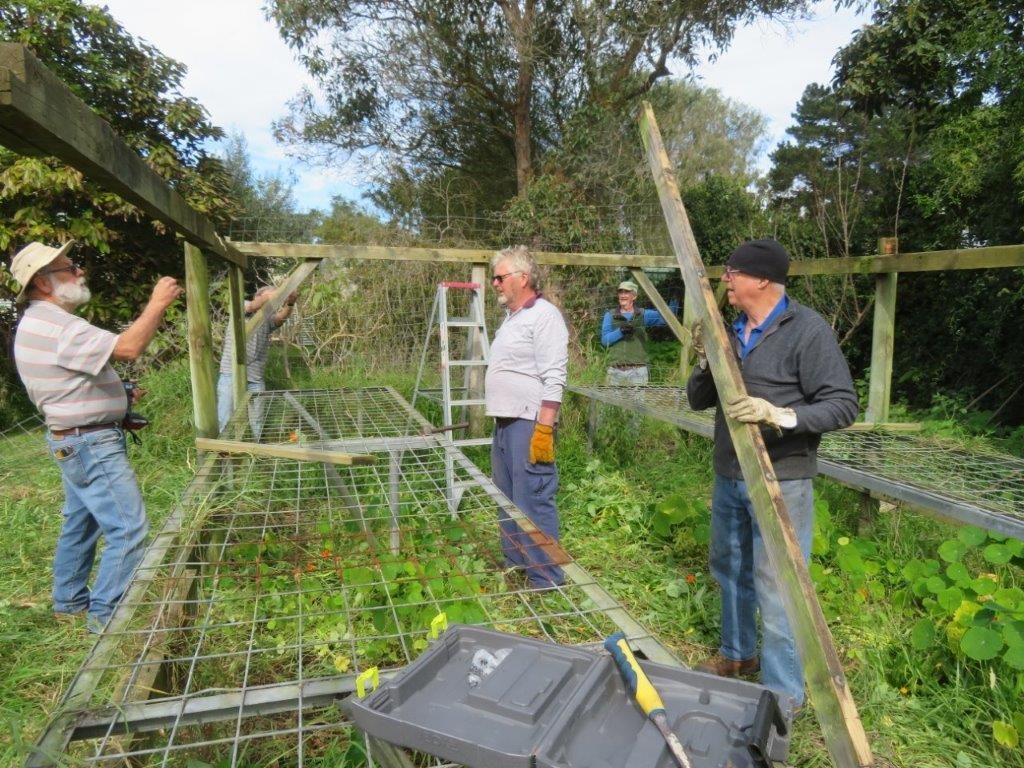
The Denmark Men Shed guys – rough sense of humour but true legends. Here they are helping relocate a shadehouse.
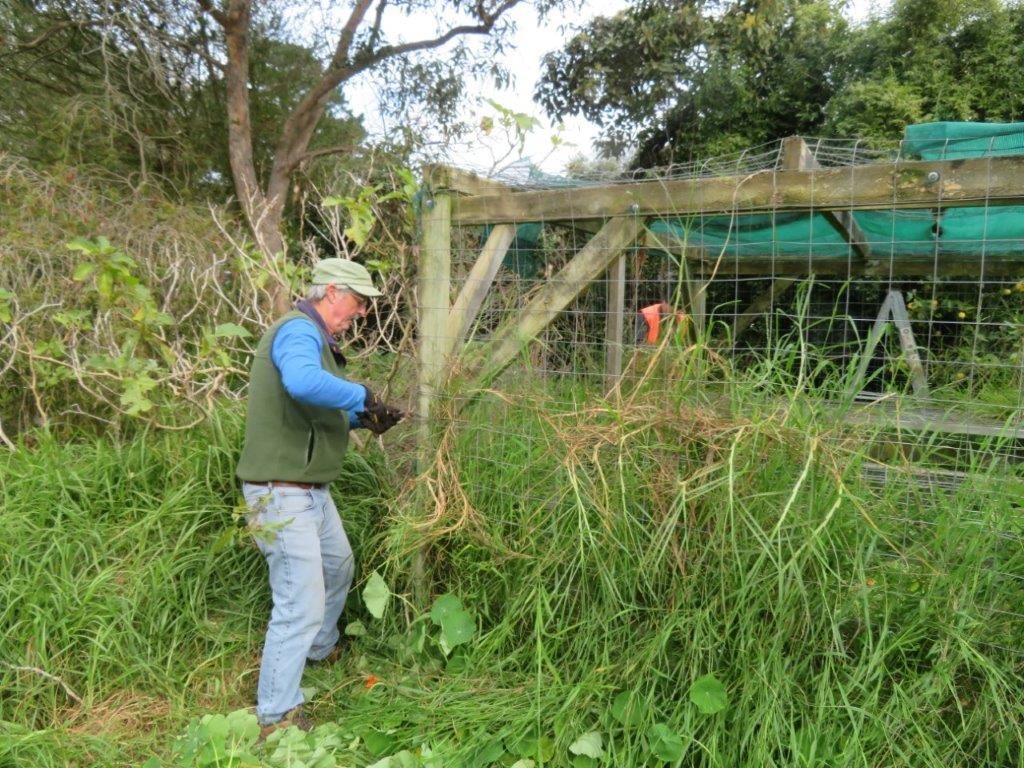
Greg helping relocate a shadehouse.. a true Aussie stalwart !
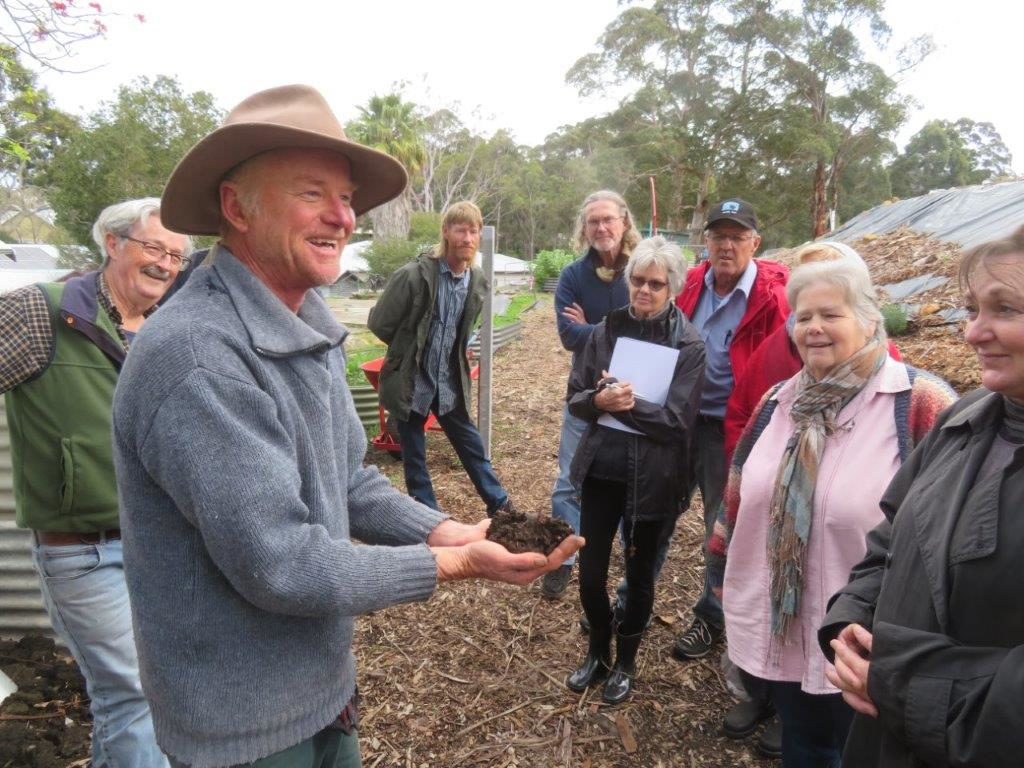
Neal – Denmark’s garden maestro and enthusiastic teacher of horticultural knowledge
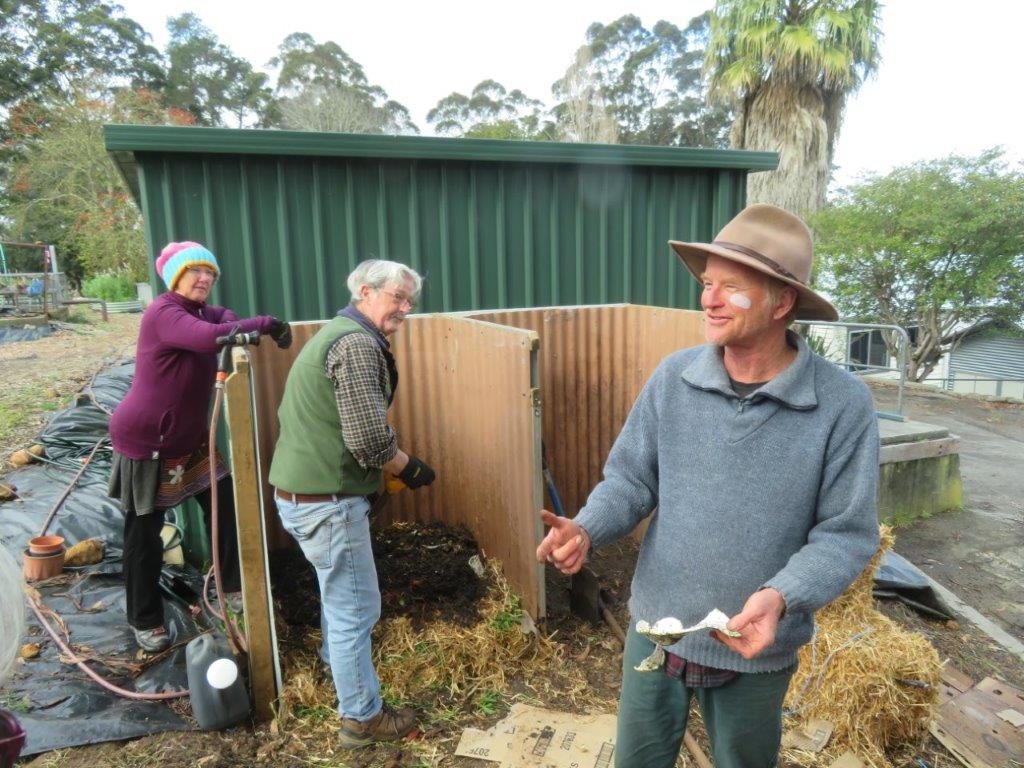
Shirle, Greg and Neal at our composting workshops.. all deeply feeling beings who have green hearts and fingers
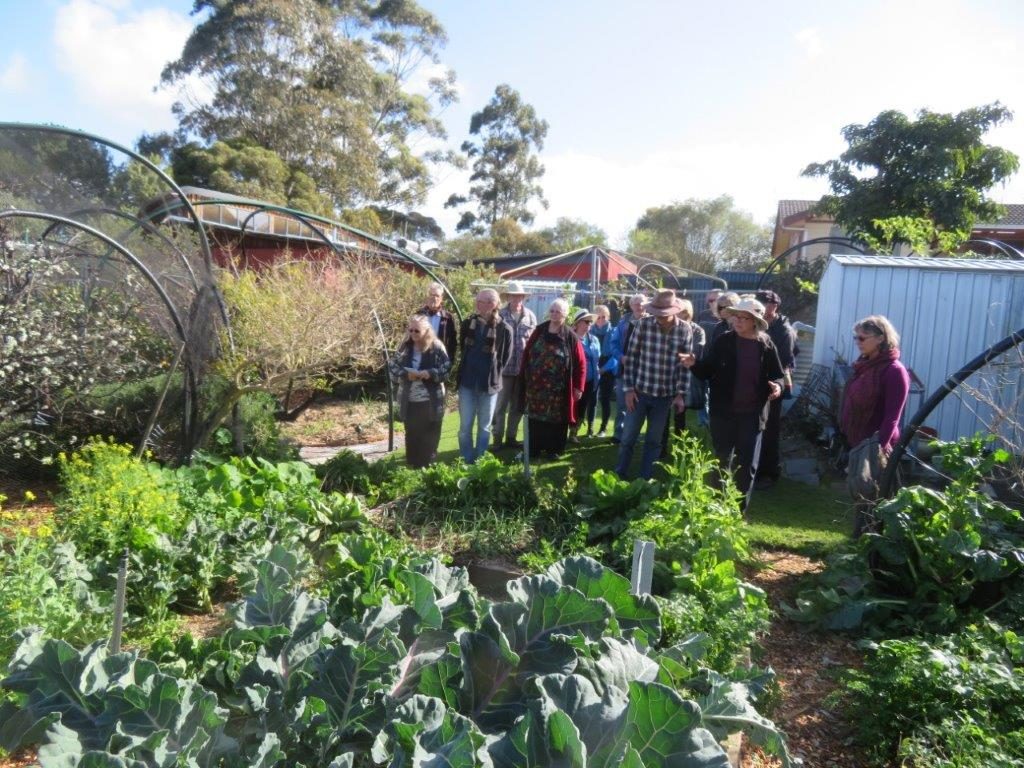
Lucia guiding the group through her spectacularly productive garden
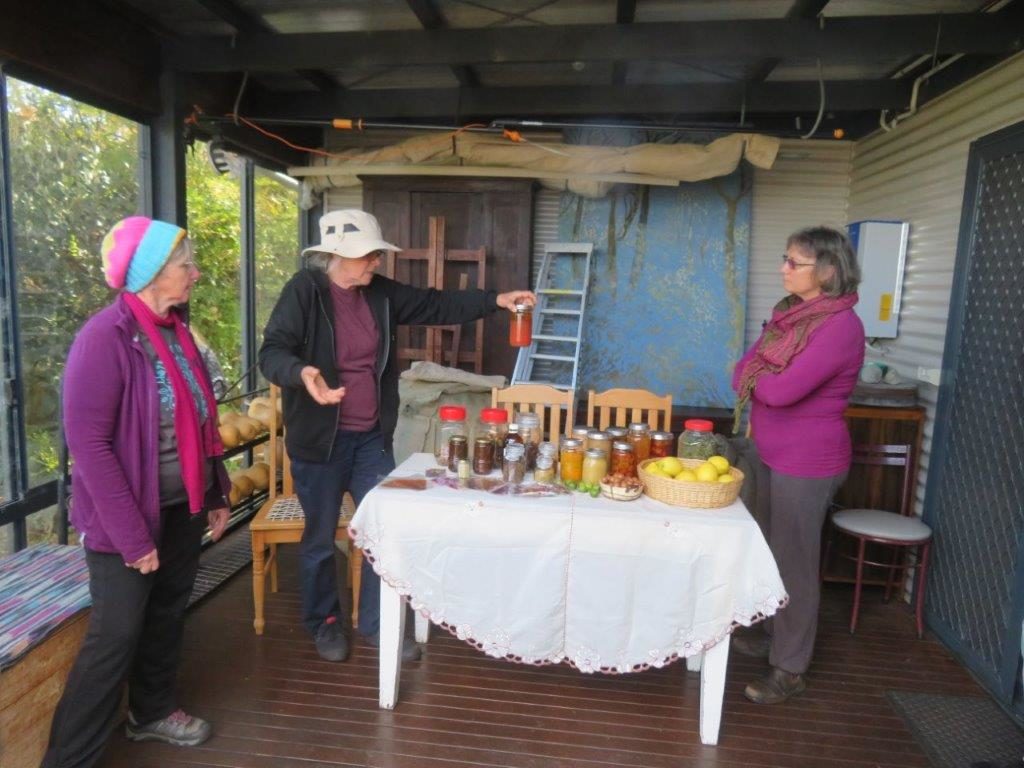
Lucia (centre) with her garden produce, Dawn (right),another dedicated volunteer and contributor to not just the community garden but much more.
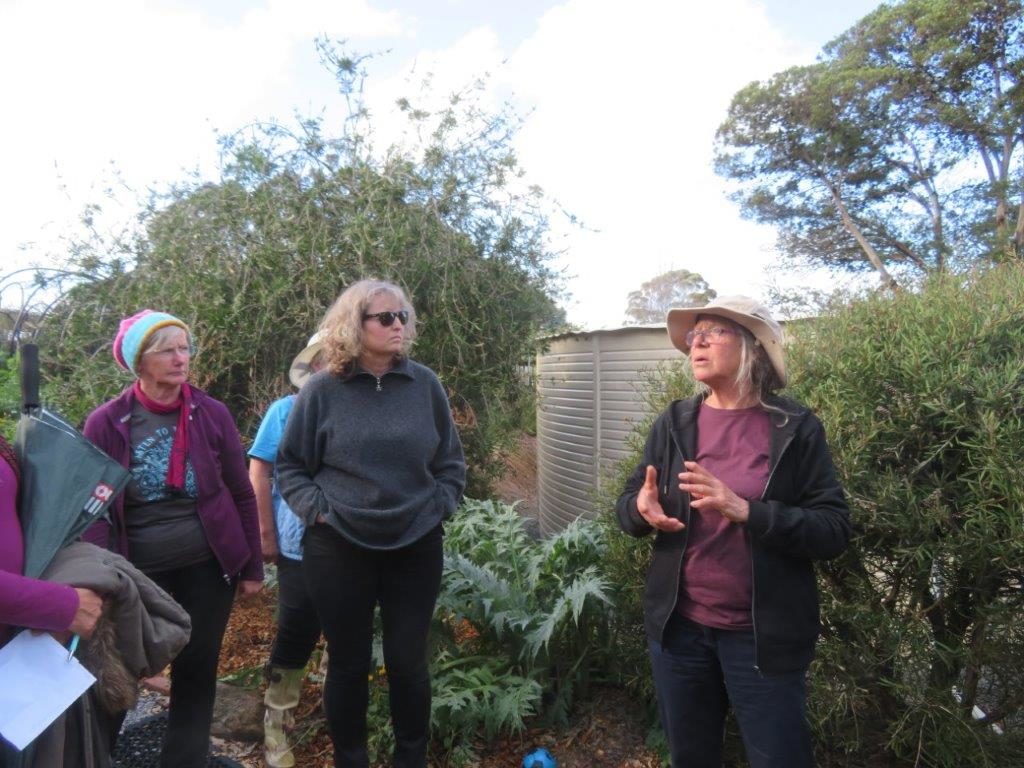
Lucia( right) who let us loose in her wonderful home garden last weekend – and Petra ( centre) who does a fabulous job of helping drive the Denmark Community Resource Centre, and Shirley ( healer and giver)
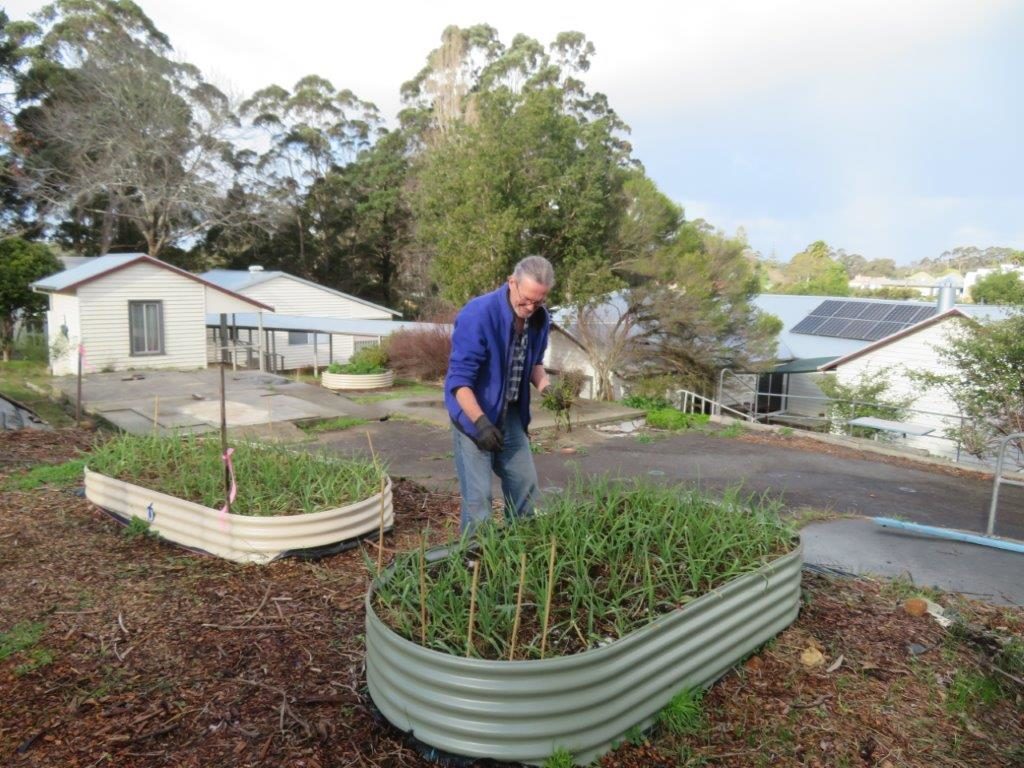
Campbell communicating with the garlic in the DCG (Denmark Communitarian Garden)
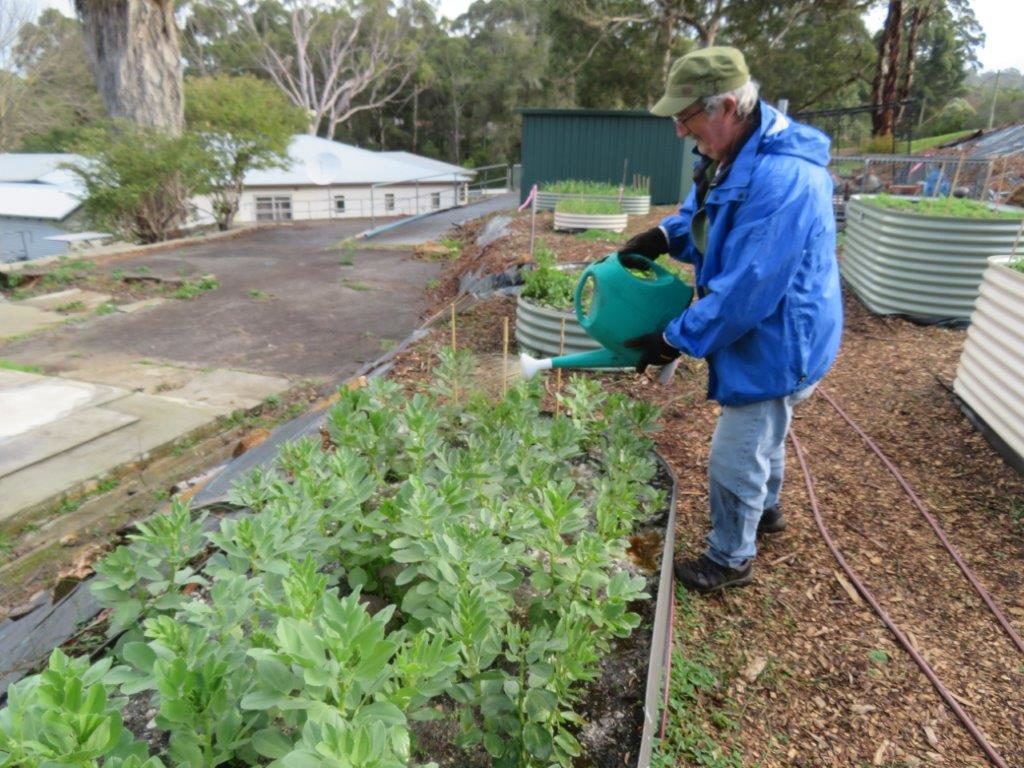
Greg communicating with the broad beans
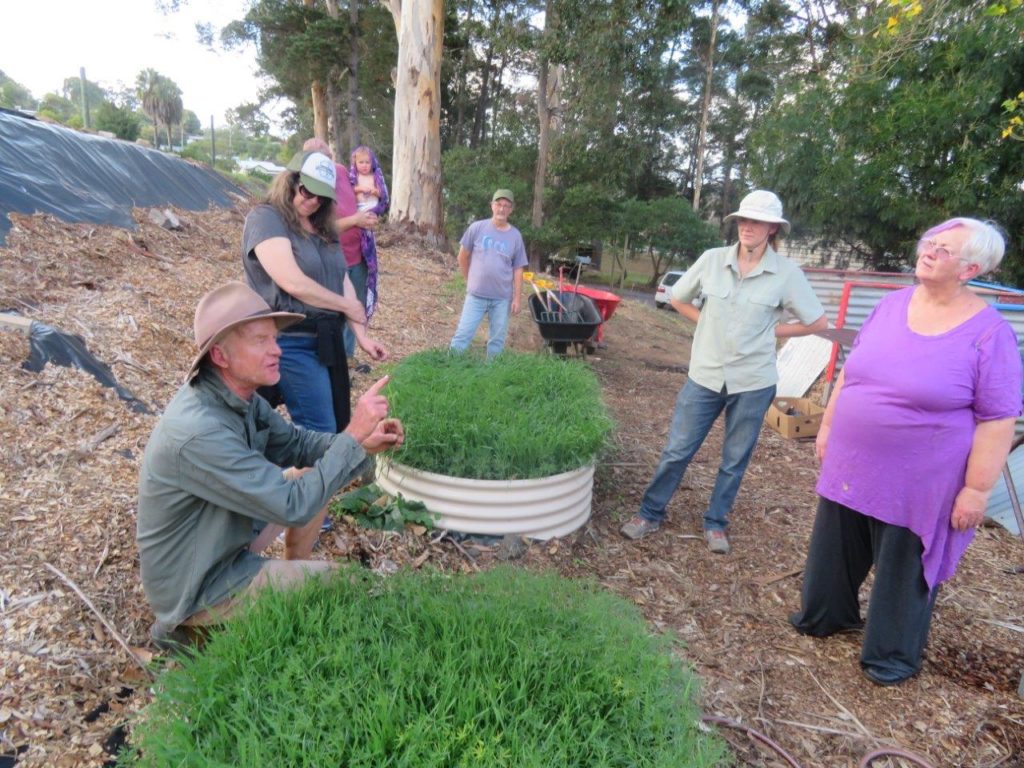
Neal, Gloria and other garden enthusiasts
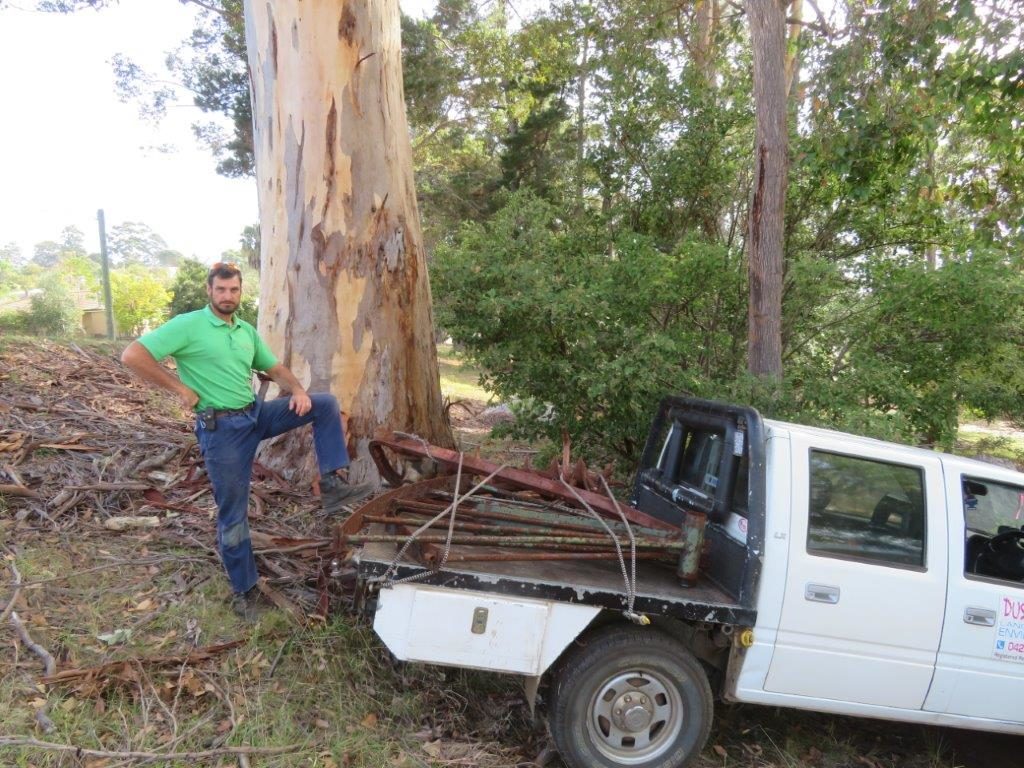
Carl, another legendary community supporter, who never fails to lend a hand
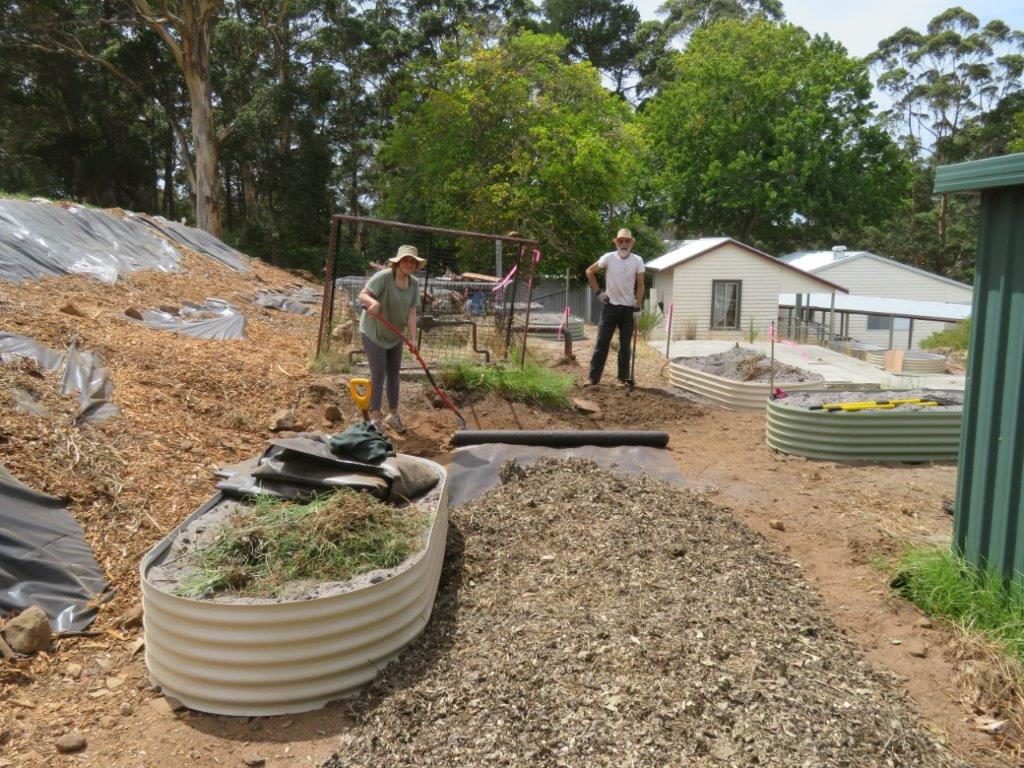
Thanks to all the Wwoofers who give so generously to the places they volunteer, in this case the Denmark Community Garden
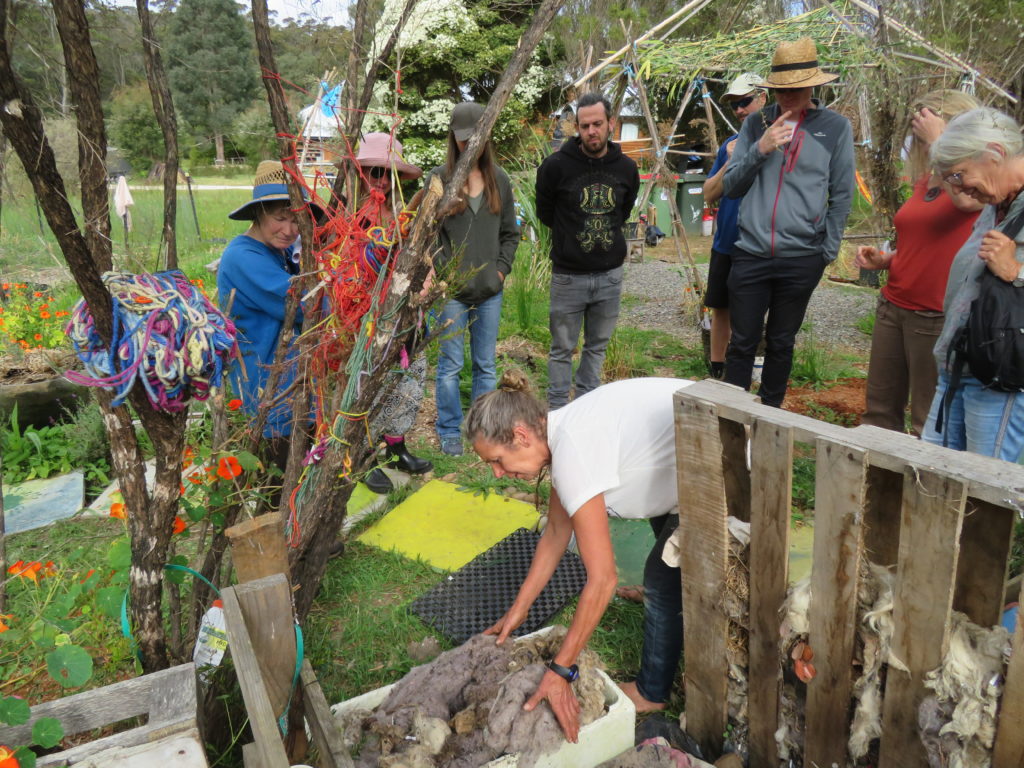
Kristi, in her element at the Golden Hill Waldorf School.. winning Gold at the Waste Minimisation Olympics and another unsung community heroine
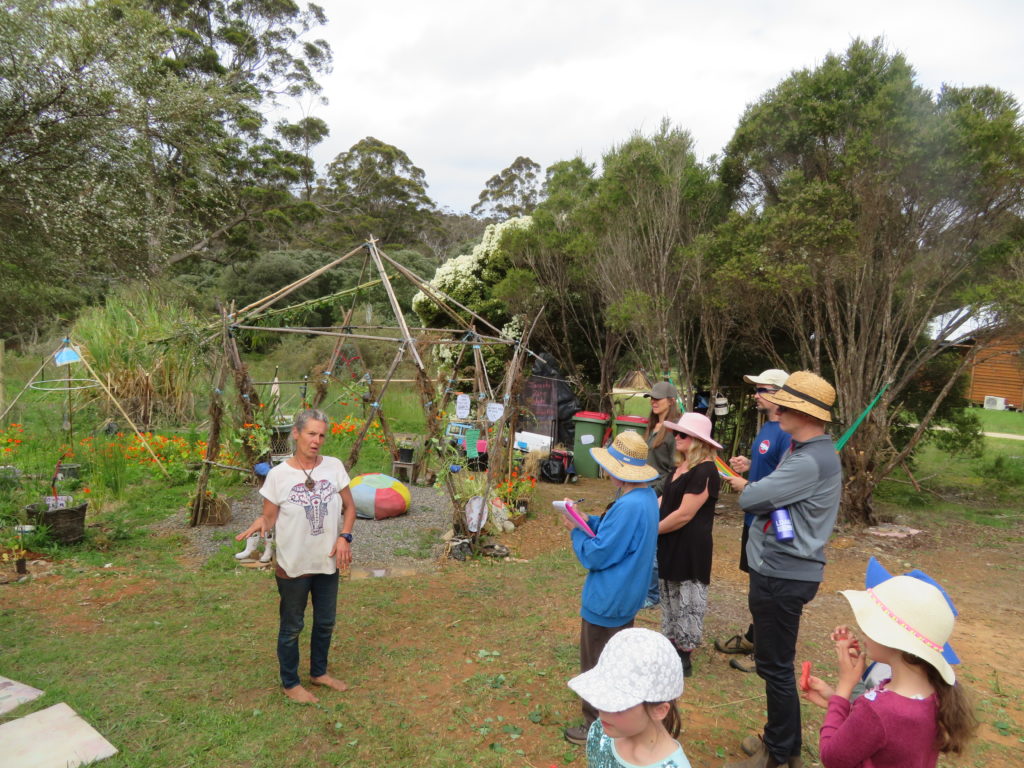
Kristi in composting action
by Basil | Sep 10, 2019 | Green Skills Inc. - Sustainability Non-Profit
Appreciating some magnificent contributors to our Denmark-Kwoorabup community
Here Green Skills takes the opportunity to thank and appreciate those volunteers and groups who support the Denmark Community Garden and who are consistently marvellous. This is a tribute to them and all the many quiet people who give heaps to our town and our world. Thank you
Support to establish the garden has come from Green Skills, the Denmark CRC, Kwoorabup Denmark Transition Town Network, the Foundation for Rural and Regional Renewal, the Denmark Community Windfarm Group Sustainability Fund, Metroof, Thornton’s Hardware & Mitre 10, the Denmark Men’s Shed, contractors, other groups & volunteers
Basil
Green Skills Denmark 98483110

Michael (of RAC rescue fame), Don and Greg. Last Wednesday in the pouring rain, Michael volunteered his truck and skills to help move some big shadehouse benchtops to the DCG

The Denmark Men Shed guys – rough sense of humour but true legends. Here they are helping relocate a shadehouse.

Greg helping relocate a shadehouse.. a true Aussie stalwart !

Neal – Denmark’s garden maestro and enthusiastic teacher of horticultural knowledge

Shirle, Greg and Neal at our composting workshops.. all deeply feeling beings who have green hearts and fingers

Lucia guiding the group through her spectacularly productive garden

Lucia (centre) with her garden produce, Dawn (right),another dedicated volunteer and contributor to not just the community garden but much more.

Lucia( right) who let us loose in her wonderful home garden last weeke\nd – and Petra ( centre) who does a fabulous job of helping drive the Denmark Community Resource Centre, and Shirley ( healer and giver)

Campbell communicating with the garlic in the DCG (Denmark Communitarian Garden)

Greg communicating with the broad beans

Neal, Gloria and other garden enthusiasts

Carl, another legendary community supporter, who never fails to lend a hand

Thanks to all the Wwoofers who give so generously to the places they volunteer, in this case the Denmark Community Garden

Kristi, in her element at the Golden Hill Waldorf School.. winning Gold at the Waste Minimisation Olympics and another unsung community heroine

Kristi in composting action
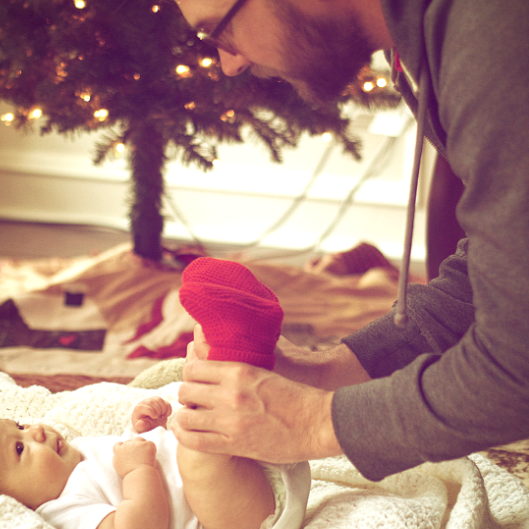
by Laura | Jul 31, 2019 | Green Skills Inc. - Sustainability Non-Profit
They’re becoming more common – “eco-disposable nappies”. Biodegradable, chlorine free, fragrance free, chemical free, cloth-like … the list goes on and the packaging is convincing.
But I’ve always wondered – are these claims true or is it greenwashing? Can these nappies truly be compostable?
To find out for yourself, look up company websites or nappy packaging – what % of their nappies is compostable? Figures range from 10% upwards.
This means, only a part of the nappies is compostable. They still contain plastic, as a minimum, in: the elastic in the leg cuffs, the tabs that fasten the nappy, and the backing of the tabs (that you rip off to fasten the nappy).
So, no nappy is 100% compostable.
Because of this, even compostable nappies belong in the waste-to-landfill (red lidded) bin.
“All nappies, even those that claim to be biodegradable or compostable need to go in the waste-to-landfill bin. At present, there is no known brand of compostable nappies that can completely break down in a commercial composting system. This is due to the plastic elements such as liners, tabs, and elastic that remain as residue after being processed. The plastic components equate to more than 10% which is above the acceptable contamination.” https://www.whichbin.sa.gov.au/a-z-items
With babies needing on average 5000 nappy changes from birth to toilet training, that’s 5000 disposable nappies in landfill. Or, just 24 modern cloth nappies. More info on that topic here.
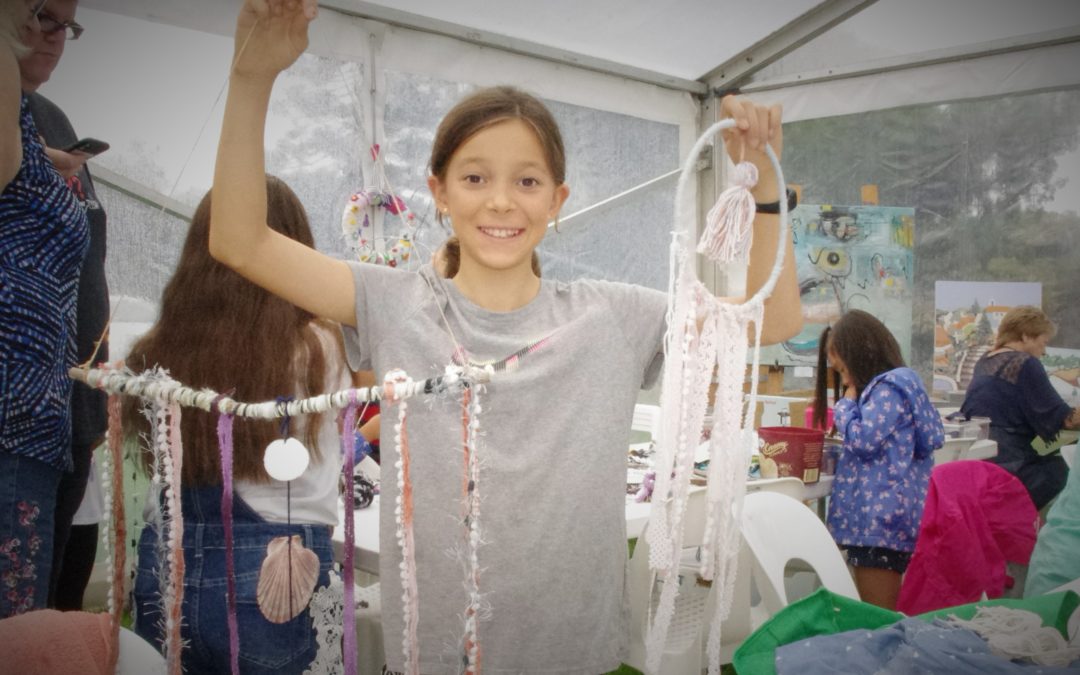
by Laura | Jun 24, 2019 | Green Skills Inc. - Sustainability Non-Profit
Sewing with Scraps workshop takes a seaside theme, with shells, driftwood and of course, fabric scraps.
Adding to Jude’s box of recycled supplies – part-balls of wool, op shop ribbons, wire hangers – participants choose to make either a dreamcatcher or a mobile.
This sustainability workshop teaches children, teens and adults how to breathe new life into unwanted clothes and craft supplies, and create something beautiful.
Pictured: a happy participant of Coogee Live – the City of Cockburn’s seaside festival.
To bring this workshop to your organisation or environmental education centre, contact the Green Skills Perth office on 9360 6667 or email [email protected]


















